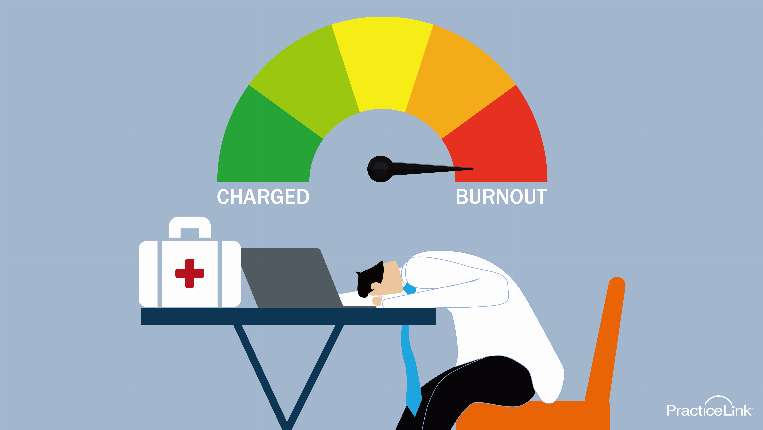5 factors that lead to burnout
 Posted by Megan Trippi
Posted by Megan Trippi

Burnout is a real issue. After nearly two years of a pandemic, it’s become even worse, especially for health care workers. It’s important to notice signs of burnout in your hires, employees and throughout your organization. By being aware of them, you can hopefully avoid it becoming a problem - and increase retention and job satisfaction for your hires.
Five factors that can lead to burnout are:
- Workload
This might seem obvious, but if you are short staffed or notice your employees consistently taking call or having to take on more patients, it’s most likely taking a toll on them. Think about your own workload. When you have the capacity to fulfill your work responsibilities and also make time for personal growth and some recovery, you feel refreshed and can put more effort into your job duties. When you are overwhelmed and feel like you don’t have enough time in the day to complete your work, everything starts to suffer, including your energy.
If you see your employees taking on too much and not getting time off, assess your staffing needs. Do you need to hire a locum to help take on some of the workload? Is it time to fill another position? One way to get ahead of your physicians or advanced practice providers becoming overwhelmed is to look ahead to potential openings and work to fill those quickly before remaining providers are taking on colleagues’ patients and work.
- Lack of control
Have you been in a position where you don’t feel like you have a say in anything that affects you? Maybe you feel like you always have to be available to solve crises or have random tasks put on your plate for which you didn’t plan. You might feel like you have no control over matters that affect you. Your hires feel the same when this happens.
Work with leadership to mitigate unknowns and provide some autonomy for your hires, and try to have loose plans and schedules in place for your employees. In medicine, there will be issues out of your providers’ control, but help manage expectations during the interview and onboarding process so they understand when they can voice their opinions and when they may not have a say in matters of the organization.
- Unclear expectations and ineffective training
When you don’t know what is expected of you, it’s hard to meet expectations and can be frustrating. You can help manage your hires’ expectations of the job and make them aware of what will be expected of them early in the hiring process or during onboarding. Their supervisors should also be open with them about what they’ll want from them in their new role.
If they are not made aware of requirements or properly trained for the job they’ll perform, they won’t feel comfortable or confident in the work they are doing.
- Work environment
You’ve probably heard a positive work environment contributes to satisfied and productive employees. The opposite is also true. If your organization has a toxic or negative culture, your employees will most likely not be thrilled to come to work every day. If a new hire feels they can’t speak up around more senior colleagues or they don’t fit in with the rest of the staff, it can add to their job stress.
Help nurture a positive work environment early and often. Promote your culture during recruitment, be both patient- and physician-focused, keep employees engaged and part of discussions, and look for opportunities to incentivize employees. When they feel valued and a part of the team, they will be more motivated to produce positive results.
- Imbalance in work and personal life
Working too much and not being able to do anything for yourself or spend time with family can definitely lead to burnout. For physicians on call, they may feel they never get to see family and friends, so it’s imperative to build schedules that allow for some time off. It’s also a good idea to be upfront about call and schedule expectations, so new hires know what kind of hours they will be working.
Providers often work long, hard hours, but it’s important to note when it becomes excessive so you can work with their supervisors to allow time to rest and recharge. Encourage vacation, self-care and personal time. Taking time to reset will help providers feel refreshed and provide better quality care for their patients.

